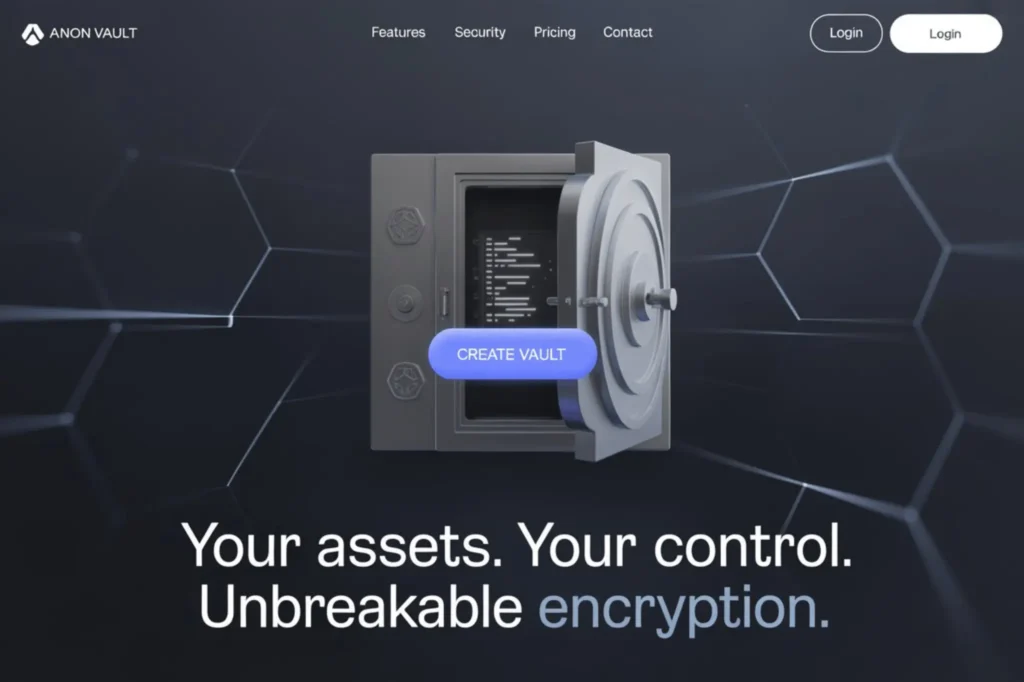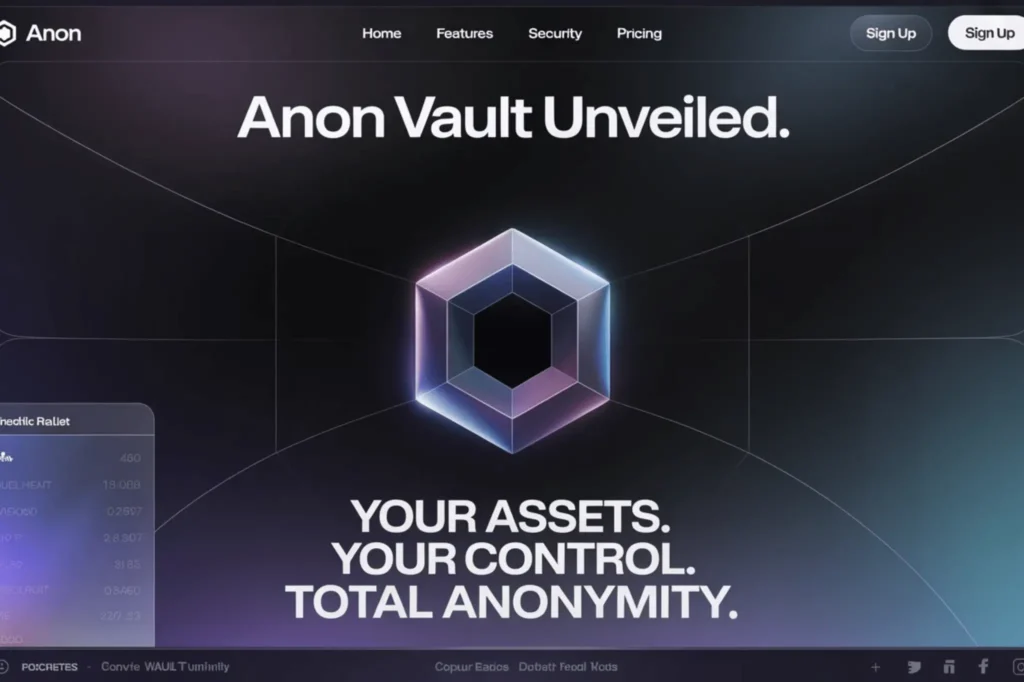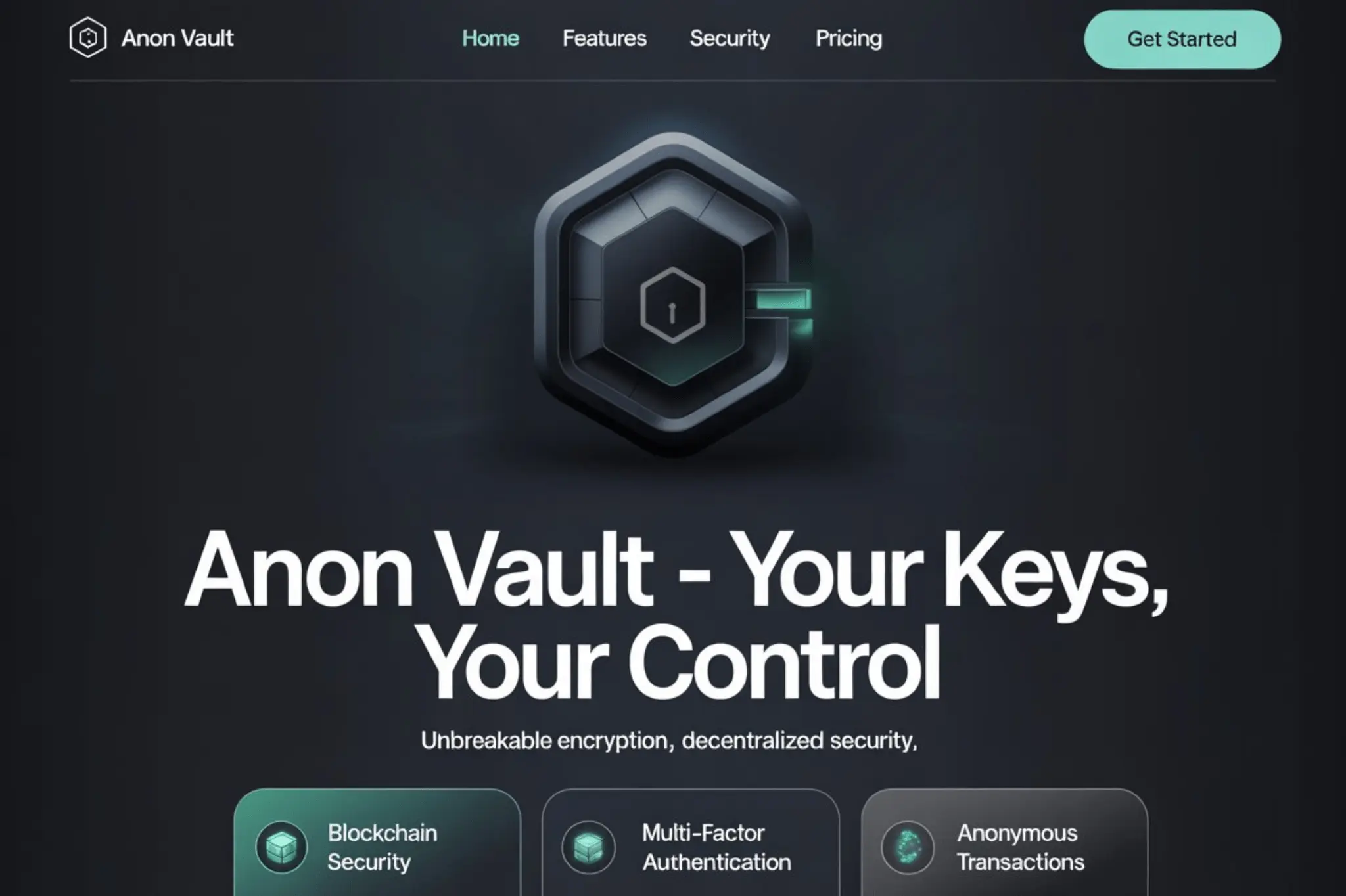Anon Vault Unveiled world where personal data can be sold, monitored, or stolen with ease, digital privacy has become a necessity. This is especially true in the cryptocurrency space, where transactions on public blockchains are transparent by design. However, not all transparency is good—especially when it reveals your holdings, activity, or identity.
Enter Anon Vault. This emerging privacy solution empowers users with true self-sovereignty. With cutting-edge encryption, zero-knowledge proof systems, and a commitment to decentralization, Anon Vault Unveiled is reshaping what it means to be secure in the digital era.
What Is Anon Vault Unveiled?
Anon Vault is a privacy-first digital storage and transaction system powered by blockchain technology. It allows users to hide their transaction history, wallet activity, and asset holdings while retaining full control of their funds. Unlike centralized exchanges or traditional wallets, which expose user data to third parties or are vulnerable to hacks, Anon Vault eliminates these weaknesses by removing single points of failure and refusing to collect any identifiable information.
At its core, Anon Vault is not just about hiding data—it’s about restoring power to the user.
Why Traditional Wallets and Storage Fail the Privacy Test
Even though platforms like MetaMask or Ledger are popular for managing crypto assets, they fall short when it comes to on-chain privacy. Every transaction, wallet interaction, or token movement is recorded publicly. This leaves users vulnerable to profiling, scams, front-running, and even targeted surveillance.
Centralized platforms introduce further risk by storing personal data, enforcing KYC, and retaining access to your wallets or assets under certain jurisdictions. In contrast, Anon Vault gives you full control while hiding your digital footprint entirely.
How Does Anon Vault Work? A Layered Breakdown
At the heart of Anon Vault’s privacy promise lies a sophisticated suite of technologies designed to eliminate traceability.
- Zero-Knowledge Proofs (zk-SNARKs): Allows transaction validation without exposing any details.
- Stealth Addresses: Generates a unique, untraceable address for every transaction.
- Ring Signatures: Blurs the identity of the actual sender by mixing their data with others’.
- Decentralized Node Storage: Distributes data across a node network, preventing centralized failures or leaks.
- Smart Contract Privacy Controls: Enables programmable rules like delayed unlocks, expiration dates, or multisig access.
These layers of protection work together to create an environment where even blockchain explorers are rendered blind.

Top Features That Set Anon Vault Apart
Anon Vault offers a variety of security-enhancing and privacy-centric features.
- No KYC Needed: Users can create and use their vaults without revealing any personal information.
- Multi-Factor Authentication (2FA): Combines passwords, device verification, and biometrics.
- User-Friendly Dashboard: Designed for non-tech users to easily set up, monitor, and customize their vault.
- Routine Security Audits: The open-source protocol is regularly inspected by third-party experts.
- Anonymous Cross-Platform Usage: Interacts securely with Web3 platforms without linking user activity.
These features empower users to operate freely while staying completely invisible online.
Who Needs Anon Vault? Key Use Cases
Privacy is not just for activists or tech elites. In today’s environment, everyone can benefit from stronger control over their digital presence.
Anon Vault is especially useful for:
- Journalists and Whistleblowers who need to protect sources and data
- Crypto Traders and Hedge Funds who want to shield strategies and asset movement
- NFT Collectors looking to avoid phishing and public exposure
- Freelancers in Restricted Economies who receive payments from abroad
From individuals to institutions, the vault’s applications are vast.
Setting Up Your Anon Vault: A Step-by-Step Walkthrough
Creating an Anon Vault is easier than it seems, but it does require attention to privacy best practices.
Start by selecting a privacy-focused platform like zkSync Era, Railgun, or Nocturne. These allow you to connect via Web3 wallets, generate burner addresses, and deploy smart contracts that shield your activity. After funding the vault with your crypto assets, you can define custom access settings such as multisig requirements or timed withdrawals. All transactions happen behind stealth addresses and zero-knowledge protocols, keeping your identity hidden throughout.
Use tools like VPNs, hardware security modules, and separate devices to enhance your setup’s security and prevent data leaks.
Best Practices for Operational Security (OpSec)
Bulletproof privacy requires more than just using the right tool—it demands the right behavior.
- Use Separate Devices: Avoid accessing your vault from phones or computers used for regular activity.
- Always Use a VPN: Mask your IP and location while connecting to the vault or interacting with dApps.
- Never Share or Reuse Addresses: Avoid connecting vault addresses to any known or public wallet.
- Split Assets Across Multiple Vaults: Diversification minimizes risk if one vault is compromised.
- Disable Browser Fingerprinting: Use privacy-first browsers or extensions to prevent metadata leaks.
These habits significantly reduce your risk of de-anonymization or digital surveillance.
Anon Vault vs. Other Privacy Tools: A Clear Winner?
When compared with hardware wallets, centralized solutions, or crypto mixers, Anon Vault offers unmatched synergy between usability, programmability, and privacy.
Unlike mixers like Tornado Cash, which only anonymize transactions temporarily, Anon Vault creates an ongoing privacy environment. In contrast to hardware wallets that secure access but reveal activity on-chain, vaults maintain full privacy without compromising security. Its programmability makes it ideal for DAOs, businesses, and investors alike.
Challenges, Compliance, and Future-Proofing
Despite its strengths, Anon Vault isn’t immune to scrutiny. Governments are increasingly regulating privacy tools, with protocols like Tornado Cash facing sanctions. Critics argue that complete anonymity can be misused. Yet developers of Anon Vault are already working on zk-KYC models—ways to prove compliance without revealing identity.
Another challenge is user education. Many still find the idea of vault setup daunting. Fortunately, intuitive UIs and setup wizards are helping bridge that gap.
As quantum computing approaches, Anon Vault projects are also researching quantum-proof encryption protocols to stay ahead of the curve.
The Path Ahead: Integration of Web3 and Anon Vault
The future of Anon Vault is interwoven with the evolution of Web3.
Expect seamless integration with:
- Decentralized identity (dID) systems for anonymous reputation building
- Networks for decentralised storage (DePIN), such as Filecoin or Arweave
- AI-based vault management bots for smart privacy suggestions
As DeFi, GameFi, and DAOs evolve, so too will the vaults that guard them.

Final Thoughts on Anon Vault Unveiled
Privacy is a pillar of freedom, and Anon Vault Unveiled brings that freedom to your crypto wallet. It redefines what it means to be self-sovereign in a decentralized world—allowing you to transact, store, invest, and interact without compromise.
With advanced cryptography, user-friendly tools, and a strong community behind it, Anon Vault is more than a feature—it’s a future.
FAQs
What is Anon Vault?
A blockchain-powered digital vault that hides your transaction data, wallet ownership, and asset activity from the public.
Is Anon Vault legal to use?
Yes, but its usage must align with your local crypto and privacy laws.
Can I store NFTs in Anon Vault?
Absolutely. Many vaults support NFT storage while keeping ownership anonymous.
What happens if I lose access to my vault?
Without a guardian or backup key, access may be permanently lost. Use multisig or secure recovery methods.
Does it cost anything to use Anon Vault?
Vault deployment is often free, though you’ll need to cover blockchain gas fees.
Is Anon Vault better than using Tornado Cash?
Yes, for long-term storage and privacy management. Tornado Cash only scrambles individual transactions.

